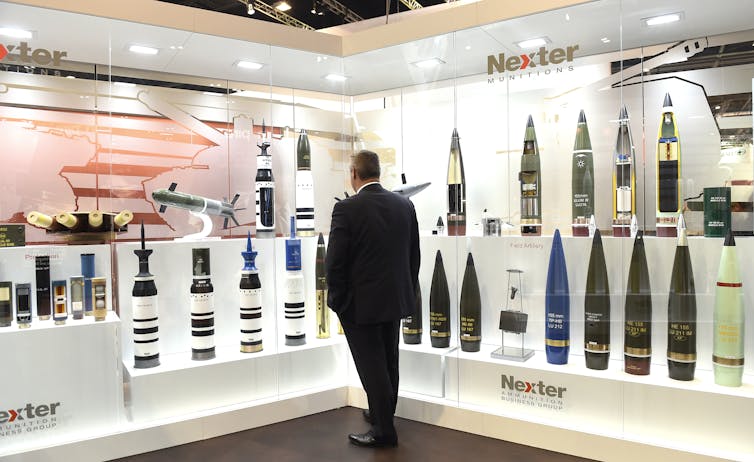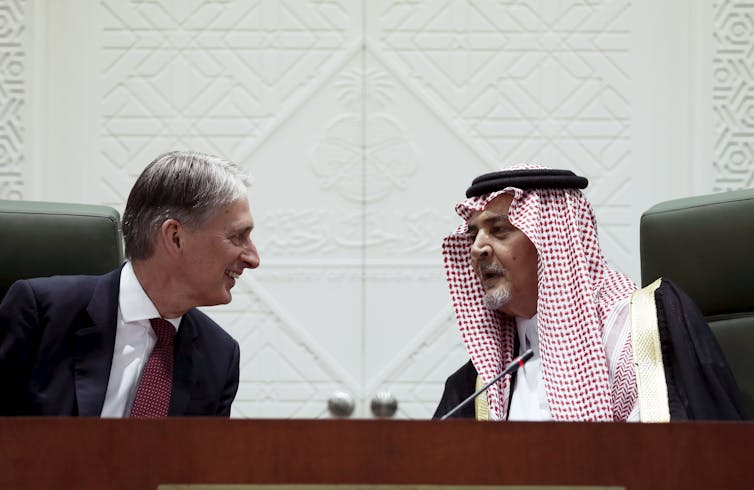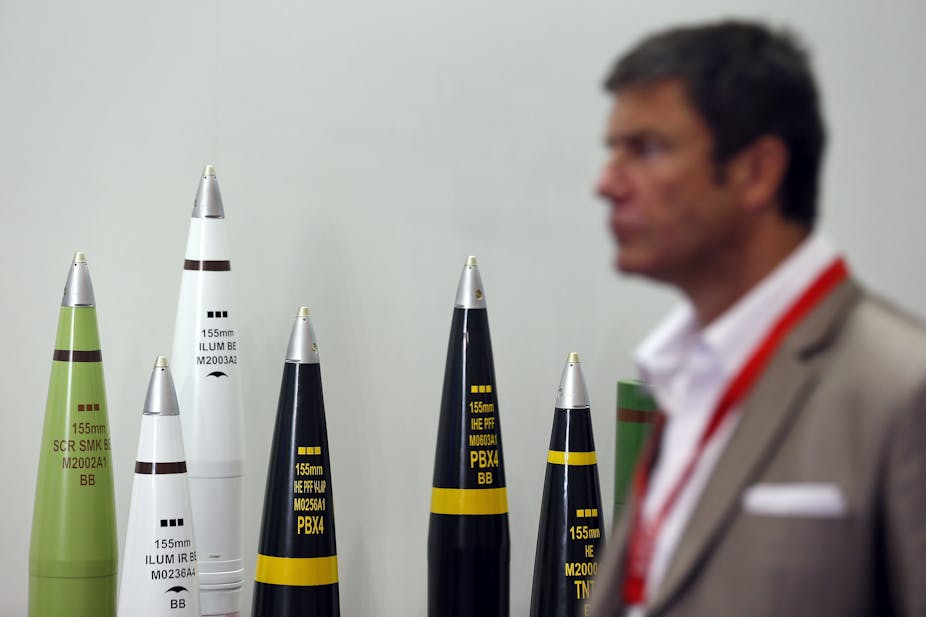The aphorism that history repeats itself, first as tragedy, then as farce, seems cruelly relevant to the arms trade. Its history is littered with examples of arms transfers pursued on the basis of short-term interests, only for the same arms to be subsequently used in ways the supplier never intended.
Since at least World War I repeated arms trade scandals suggested that states were either unable or unwilling to learn lessons from the past. But in the late 1990s, the New Labour government adopted an ethical arms sales policy that appeared to offer a break with this past. It first established a new set of ethical criteria for arms sales, and then led on the development of what would eventually become the EU Common Position, which sets out legally binding guidelines for arms exports.
The government also set up a new parliamentary Committee on Arms Exports Controls (CAEC) to bring greater transparency to UK arms sales and to monitor the implementation of ethical commitments. The current government has inherited this framework, and has also been a leading proponent of the Arms Trade Treaty, which entered into force in December 2014.
Today’s government cites these measures in its regular claims to operate one of the most rigorous arms export control regimes in the world. Yet the UK routinely violates its commitments in spirit if not letter.
What goes around …
With human rights now declared “no longer a top priority” under the Conservatives, the current era increasingly feels like a rerun of the 1980s when it comes to international responsibility.
Just as the current government is doing, the Thatcher government imposed austerity at home while aggressively pursuing arms sales abroad in the hope of generating jobs, improving Britain’s balance of payments and producing economies of scale for domestic weapons procurement.

The signature element of this policy was the Al-Yamamah contract with Saudi Arabia – a deal that would become the mainstay of the British defence industry. At the same time, the Iran-Iraq war created both a massive market for arms supplies and a perceived imperative to provide arms to the secular Iraqi regime.
In addition, the Thatcher government exported several hundred tonnes of dual-use chemicals to Syria, while the Soviet invasion of Afghanistan in 1979 prompted Western powers (including Britain) to send massive arms supplies to the Afghan Mujahideen.
The outcome, of course, was various forms of “blowback”. The dual-use chemicals supplied to Syria were subsequently used to produce nerve agents including sarin. And while arming the Mujahideen arguably provided a short-term success, in the long-term weapons continue to circulate in the country and the wider region and are still used today by Taliban forces.
The arms-to-Iraq scandal and the ensuing Scott enquiry revealed that ministers had both secretly relaxed government policy on supplies to Iraq and provided weapons to neighbouring states in the knowledge they would be redirected to Saddam Hussein.
The UK-Saudi arms relationship, meanwhile, was almost immediately dogged by allegations of corruption. Britain quickly found itself in a supplicant relationship, the Saudis requiring ever more compromises in domestic and foreign policy to be appeased – a problem that continues to this day.
Back to the future
While today’s cast list is slightly different, the new era of “ethical” arms sales feels much like the bad old days. The short-termism of foreign policy and the attractions of the Gulf arms market for austerity Britain have meant that the serial compromises over human rights have continued.

And once again, the Middle East is generating a crisis of European arms export and wider foreign and domestic policy. Most notably, it appears that British arms have been used by the Saudi-led coalition fighting Houthi rebels in Yemen in an increasingly indiscriminate war. In September 2015, a British-manufactured cruise missile of the type stocked by the UAE armed forces was used to destroy a civilian ceramics factory.
The flipside of UK arms sales to Saudi Arabia is the rise of IS and other Islamist groups. At first blush the use of British-supplied equipment in potential violations of international humanitarian law, such as the attack on an Médecins Sans Frontières hospital in Yemen, and the November 2015 attacks in Paris (with AK-47s likely sourced from the former Yugoslavia or deactivated weapons stocks) have little in common.
One attack was carried out by a coalition of states, using high-technology military equipment transferred to them by major players in the international arms trade; the other was carried out by non-state actors, using small arms acquired through criminal networks. Yet they are part of the same feedback loop: Saudi citizens are amongst the chief sponsors of Islamist politico-military movements, such as IS, which the Saudi government has failed to curtail.
As the UK goes to war in Syria and considers how it might best support “friendlies” on the ground, it is doubly imperative that Parliament holds the government to account for its policies on arms transfers. The British state must ensure that it meets its own domestic and international responsibilities, namely not to grant export licences if there is a clear risk they might be used for internal repression, used in the violation of international humanitarian law, or used aggressively either against another country or to assert by force a territorial claim.
Instead, eight months on from the general election, MPs have only just instructed clerks to reconvene the CAEC. But there has already been legal advice that the UK has breached its domestic and international commitments by continuing to supply weapons to Saudi Arabia, and the government faces a legal challenge to its policy.
In that light, the CAEC must indeed be reconstituted, and urgently launch an inquiry to shine a spotlight on what the British government is still doing. Otherwise, the UK’s arms trade history will keep repeating itself – and mostly as tragedy.

